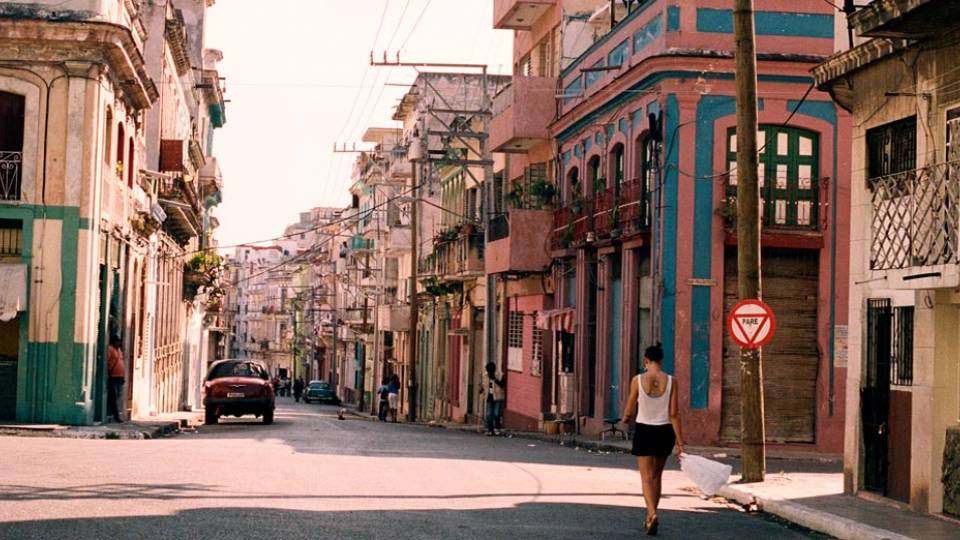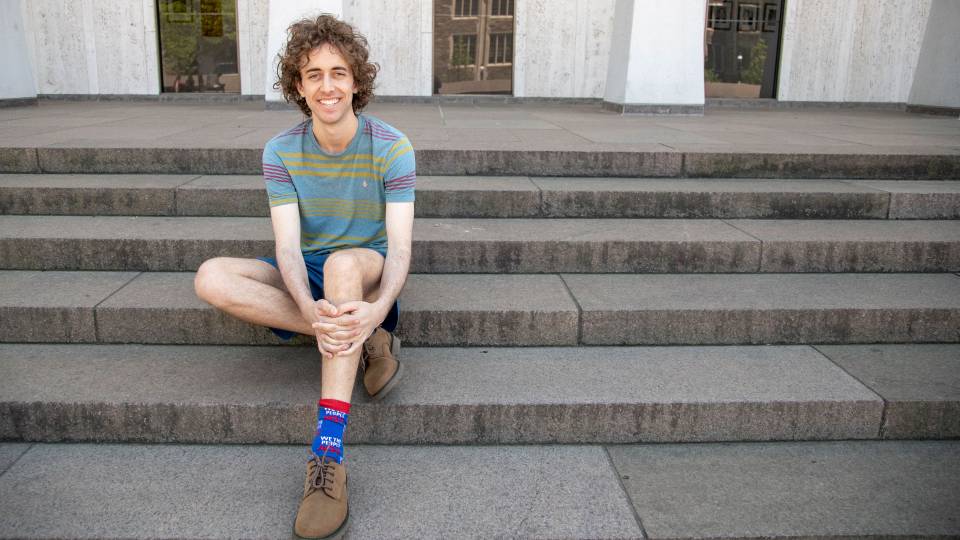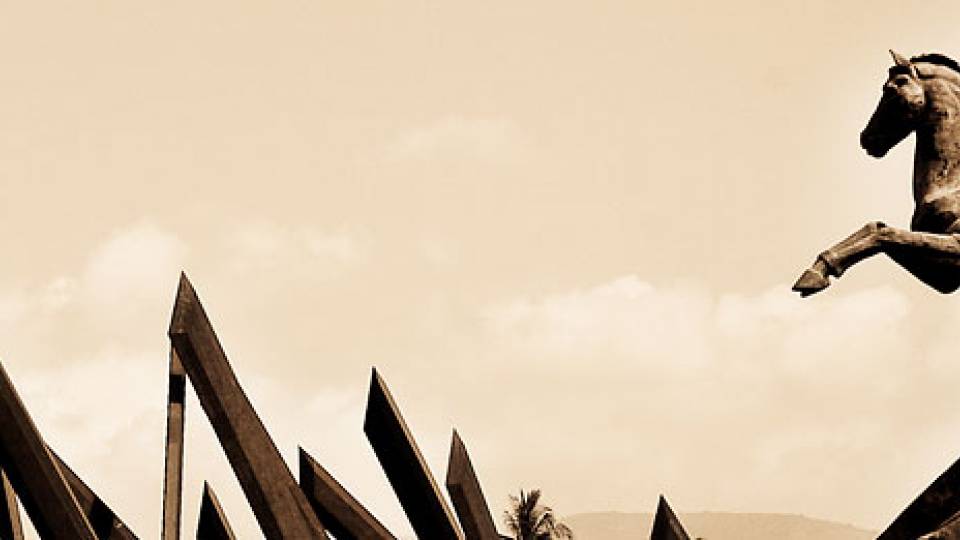On a trip to Cuba five years ago, Professor Stanley Katz was taken to the archives of Cuba's Carlos J. Finlay Museum of Science to browse through centuries-old documents related to his hobby, studying the history of science. He was dismayed to discover how they were stored.
"It was on the fourth floor of a walkup building, which had no climate control at all," recalled Katz, who has taught at the Woodrow Wilson School of Public and International Affairs for two decades. "And scattered around the room were bundles of documents, pieces of paper tied together with string and piled up. There was a skylight, and the sun was beating down on them."
Since then, Katz has worked to remedy the way documents are maintained in Cuba, a country lacking many of the most basic preservation tools. His effort continued this summer, when Katz convened a three-day conference of academics in Havana to discuss ways to improve document preservation in Cuba's libraries and archives.
Forty scholars from Cuba, Chile, France and the United States gathered for the meeting, which was run by the Working Group on Cuba, co-founded five years ago by Katz and a colleague, Kenneth Prewitt. The group was established under the auspices of the Social Science Research Council, once headed by Prewitt, and the American Council of Learned Studies, where Katz was president for 11 years.
Katz currently is a lecturer in public and international affairs with the rank of professor, as well as director of Princeton's Center for Arts and Cultural Policy Studies, which conducts research and trains graduate students in issues involving the nation's artistic and cultural policies.
The Working Group on Cuba aims to bolster the country's cultural infrastructure by training Cubans in preservation techniques and helping to improve the organization and accessibility of their materials. Those are not easy tasks. The impoverished country, which has been under a U.S. economic embargo for 40 years, is bereft of many modern conveniences, Katz said. (His project does not violate the embargo.)
When Katz's group visited the Jose Marti National Library of Cuba in June, members were shown to the computer room, which housed three IBMs manufactured in the early 1980s. The computers are the only servers for the library's entire database. While much of the country is at least two decades behind in technology, Cubans have been industrious in making do with what they have, Katz said.
In the last five years, Katz's group has provided funding for dozens of Cuban scholars to travel to conferences and workshops around the world, and has sent U.S. scholars to Cuba to teach about preservation. It also has sponsored collaborative research projects between Cuban and American scholars.
But Katz's group faces many roadblocks in trying to bring Cuba's libraries into the 21st century. Many Cuban academics have little expertise in writing grants, for example, so the Working Group on Cuba has held workshops to teach academics how to research and write grants. Katz said many American foundations believe the embargo prevents them from awarding grants to Cubans, but that is not the case. Katz is working to get more American organizations interested in giving money to Cuban groups.
Even relatively small amounts - $5,000 or $10,000 - go far in helping the country preserve its history, said Katz. He hopes to raise more than $200,000 in grants this year to fund a variety of training programs and other activities, especially for libraries and archives.
The Cuba project is something of a personal crusade for Katz, who has long been opposed to the U.S. embargo. "I've had a commitment for a long time now to do what I can to undo some of the damage the U.S. has done abroad," he said.
In 1989, before the United States normalized relations with Vietnam, Katz launched a project to bring intellectual and cultural activities to that country. "The idea was if you have national-level activities of that kind, you build, in a very small way, confidence between the two countries, particularly between highly ranked people," Katz explained.
Several years later, when Katz and Prewitt tried to launch a similar effort in Cuba, they encountered a great deal of resistance from Cuban officials. Katz asked the Vietnamese ambassador to the United Nations to speak to the Cuban ambassador, "to say we were good guys, to say that we were people they could work with." The plan succeeded: The Cuban ambassador asked Katz to lunch and later invited him to Cuba.
"Stan is good at taking communities that have been isolated from international scholarship and helping to integrate them in an intelligent way, without being arrogant or imperialistic about it," said Prewitt, who is now dean of the graduate faculty at New School University.
The Working Group on Cuba is hoping to receive a grant in coming months from the Ford Foundation, which would provide funding for a two-year archiving project.
One project already is progressing nicely. Katz helped secure a grant to preserve the papers he saw piled so haphazardly under the skylight at the Carlos J. Finlay Museum. They are now stored in acid-free files in a building with air-conditioning, where librarians are working on cataloging them.
Contact: Marilyn Marks (609) 258-3601


